
Ryan McVay/Photodisc/Getty Images
Almost 10 percent of all Americans experience peptic or gastric ulcers at least once in their lifetime. With ulcers, which are sores that appear along the inner lining of the esophagus, you experience burning, gastric pain as food travels from your throat through this area. If you are flying and you have an ulcer, take all necessary precautions to help make the flight as painless as possible.
Symptoms and Complications
Ulcers are caused when acids in your stomach -- many which come from the foods you eat -- start to eat away your inner esophagus lining, which protects your stomach tissue. Untreated ulcers can lead to serious infections in the abdominal cavity, tissue scarring and internal bleeding. Regularly taking common pain relievers, such as Advil and ibuprofen can cause ulcers. The H. pylori bacterium, which frequently live within the esophagus, also causes inflammation in your stomach. Regular smoking, drinking alcohol and stress are other common risk factors that lead to ulcers.
Treatments
Treat ulcers before you travel, and take all necessary medications with you. This can include medication that kill the H. pylori bacterium and over-the-counter medication that reduces stomach acid. Antibiotics -- if the ulcers are caused by H.pylori bacterium -- or acid-reducing medicine can also help relieve gastric pains caused by ulcers. Common medications that reduce stomach acid include acid blockers such as Pepcid, Axid or Zantac, all which are over-the-counter drugs you can get at a pharmacy. Pepto-Bismo, another over-the-counter drug, helps protect the tissue lining from acid buildup in your stomach. Carafate or Cyotec, both prescription drugs, also help protect your stomach lining tissue.
Travel Preparation
If you're experiencing serious pain in your stomach due to ulcers, visit your doctor before you travel. She may be able to prescribe effective antibiotics or prescription drugs that protect your stomach lining as well as neutralize acids in your stomach. Take medications with you onto the plane. TSA allows passengers to take medications in reasonable quantities that surpass 3.4 fluid ounces; medication also does not need to be placed in a one quart-sized ziplock bag. Avoid taking pain relievers with ibuprofen, aspirin or naproxen, as each will only aggravate your ulcer.
Food in the Plane
If you have ulcers, avoid eating spicy foods, onions, garlic, cured meats and cold cuts, tomato-based foods and seasonings such as pepper in the plane; each of these foods increase stomach acid. Avoid drinks including hot chocolate, whole milk, different types of tea like peppermint, black or green teas and citrus juices Don't drink any alcohol, as alcohol erodes the mucous lining that protects your esophagus.
Related Articles
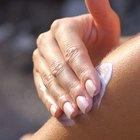
How to Get Rid of Small Whiteheads on ...

How to Treat Hematoma & Swelling After ...

Metal Detox & Acne
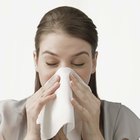
How to Deal With a Chapped Nose From ...

Foods to Prevent Jaundice
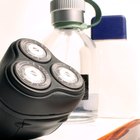
How to Get Rid of Aftershave Allergies

Swollen Lymph Nodes in Horses

What Are the Dangers of Cooking With ...

List of Soaps for Acne

Vitamins for Mental Alertness

How to Reduce Acne Inflammation

The Benefits of Castor Oil Packs

Side Effects of Certain Dri
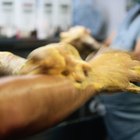
About Hibiclens

L-Lysine for Hair Growth

How to Get Rid of Stomach Freckles

Are There Ways to Get Rid of Blocked ...

Metamucil Dosage for Cats
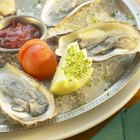
Symptoms of Food Poisoning With Oysters

Aloe Vera Gel As a Wrinkle Reducer
References
Writer Bio
Jason Cristiano Ramon holds a doctorate in political science and a master's degree in philosophy. He has taught political science in China.
Photo Credits
Ryan McVay/Photodisc/Getty Images